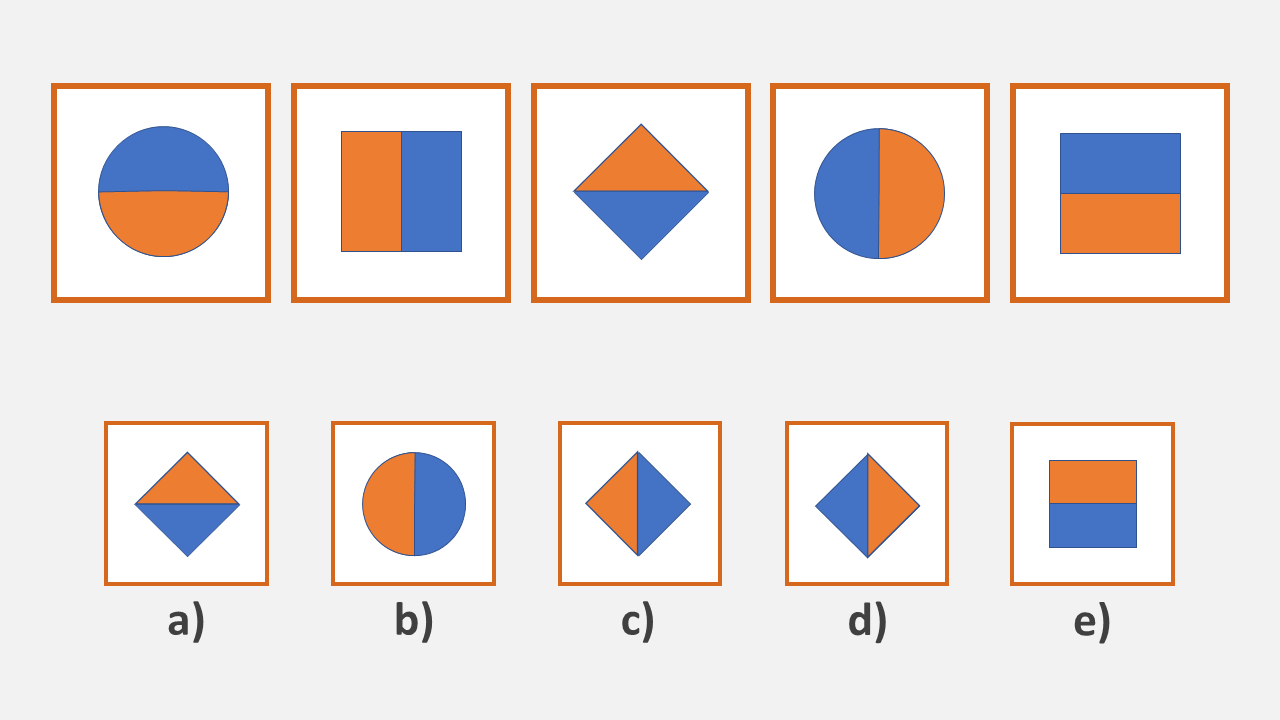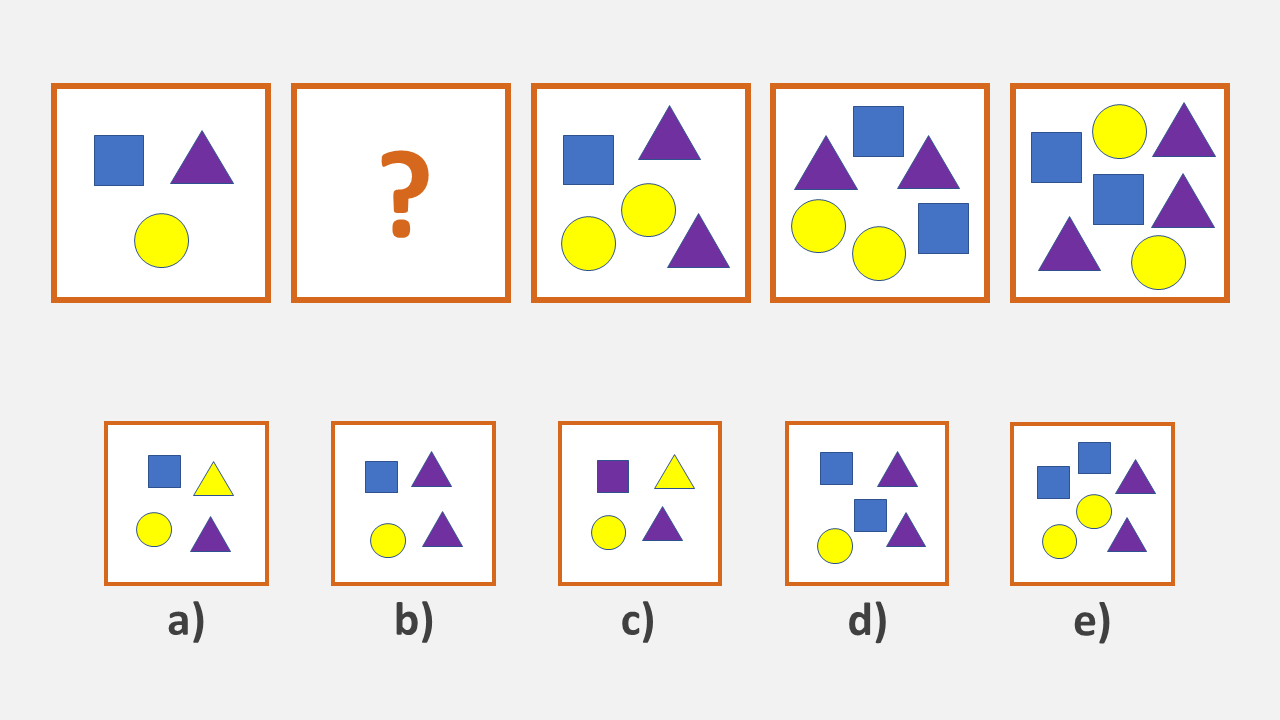A Full Guide to the PWC Assessment
All products and services featured are independently selected by WikiJob. When you register or purchase through links on this page, we may earn a commission.
- Why Work for PwC?
- What Is the PwC Assessment Test?
- What Is Included on the PwC Assessment Test?
empty
empty
empty
empty
- Example Questions of the PwC Assessment Test
empty
empty
empty
- How to Prepare for the PwC Assessment Test
- What Happens After the PwC Assessment?
empty
- Frequently Asked Questions
- Final Thoughts
Why Work for PwC?
PwC (PricewaterhouseCoopers) is one of the ‘Big Four’ accountancy firms. It provides auditing and public services across the globe.
Consistently rated as a good place to work, careers at the firm are highly sought after.
PwC emphasises a collaborative and innovative working culture.
With the opportunity to gain professional qualifications and forge a successful career, the application process is competitive.
The selection procedure is rigorous and designed to filter out applicants who don’t meet strict criteria. It typically involves the following stages:
- Submit your PwC application
- Take the Career Unlocked Assessment
- Attend an interview
- Attend an assessment center (group exercise, case study, presentation, written exercise, PwC psychometric assessments)
What Is the PwC Assessment Test?
PwC’s online assessment is called ‘Career Unlocked’. It is used as a screening tool to select suitable candidates for the next stage of the application process, the interview.
The Career Unlocked Assessment is separate from the assessment center and is typically completed before attending the assessment centre.
It consists of behaviour-based psychometric tests that assess your cognitive abilities and personality traits.
The tests are interactive and a type of game-based, or gamified assessment.
The results are used to construct a detailed profile of a candidate's unique traits. They reveal strengths and weaknesses along with behavioural characteristics.
To indicate a candidate’s likely success, these are matched with the traits required by PwC.
The PwC online assessment is designed to be:
- An objective overview of behaviour and abilities
- Fair for all test-takers by removing unconscious bias
- More enjoyable than traditional tests
The PwC test assesses:
- Numerical reasoning
- Situational judgement strengths
- Personality attributes
The online assessment is really challenging and less than 50% pass and make it to the next stage.
Try a Practice PWC Test on JobTestPrep
What Is Included on the PwC Assessment Test?
The online assessment consists of a variety of pwc aptitude tests under the banner, ‘Career Unlocked.’
PwC testing includes:
Numerical Reasoning Test
This section is designed to determine a candidate’s aptitude for mathematics. It shows their decision-making ability when faced with sets of numerical data.
The maths isn’t too challenging but it can be tricky to identify the correct values and work with them appropriately.
The maths involved is around GCSE level. For example, ratios and percentages, order of operations and interpreting data from graphs and charts.
There are 18 questions and less than one minute to work on each question.
This time pressure can add to the stress of the situation.
Logical Reasoning Test
Logical reasoning, also called abstract reasoning, involves identifying patterns and trends from a series of images.
Diagrams Include different shapes and spatial arrangements.
This section contains 18 questions that must be answered in less than a minute per question.
You will be presented with a series of five diagrams. Your job is to identify the next image in the sequence.
Practicing similar style questions is the key to success in this test as they can seem unfamiliar and confusing at first.
Pay attention to the shapes, movement and size of each element of the diagram. For example, rotation, reflection and changes of colour.
Situational Judgement Test (SJT)
These questions are designed to reveal a candidate's personality and, therefore, can be considered a pwc behavioral assessment.
This helps the hiring manager understand how a candidate is likely to behave in similar workplace scenarios they will encounter in the PwC environment.
PwC does not use situational judgement tests when recruiting for its school and college leaver, undergraduate or graduate programmes.
If you are applying for an experienced career, a situational judgement test is used as part of the recruitment process.
You will be presented with written text or videos describing a situation likely to occur in the workplace.
You must select the most appropriate response from the options provided.
To answer these questions it is essential you understand the core values of PwC.
These are:
- Act with integrity
- Make a difference
- Work together
- Care
- Reimagine the possible
These values should be reflected in your responses.
Game Based Assessments
PwC game assessments are designed to measure your cognitive ability and decision-making skills.
Only around 20% of applicants will be invited to take these assessments.
These gamified assessments record your score as well as your behaviour.
They collect data points throughout which show your reaction time and motivation for the task.
There are a total of nine different games during the test. Each one takes up to five minutes to complete.
Example Questions of the PwC Assessment Test
PwC assessment test practice questions are the best way to prepare. Have a go at these sample questions.
Numerical Reasoning Questions
1. Look at the information given in the table below:
| Role | Number employed (in thousands) |
|---|---|
| Administration | 27 |
| Managerial | 9 |
| Customer services | 42 |
| Analysis | 38 |
| Accounting | 24 |
| Auditing | 6 |
| Risk assessment | 8 |
What is the approximate percentage of those employed in accounting?
a) 24%
b) 16%
c) 18%
d) 12%
2. Look at the table below that shows the percentage sales of products in two years:
| Product | 2015 (percentage of sales) | 2018 (percentage of sales) |
|---|---|---|
| A | 36 | 22 |
| B | 18 | 9 |
| C | 7 | 16 |
| D | 24 | 34 |
| E | 15 | 19 |
| TOTAL sales value | £36,000 | £52,000 |
By how much did product D increase in sales value between 2015 and 2018?
a) 33%
b) £10,840
c) 10%
d) £9,040
1. Which image comes next in the sequence below?

2. Which image completes the pattern?

1. Consider the situation below and choose your most likely response from the options provided.
‘You have been working alongside a more experienced colleague on a project. It is nearly lunchtime, and you are due to present your findings at the end of the day. Everything is completed to present to the management team but your colleague confesses he isn’t feeling well.’
What do you do?
a) Encourage your colleague to take some time to recover so they are feeling better for the end of the day.
b) Contact the management team directly and suggest a change of day for the presentation.
c) Decide to present your findings on behalf of you and your colleague despite your lack of experience.
d) Start practicing for the presentation now so you can deliver a great performance at the end of the day.
2. Consider the following situation and choose your least likely response from the options provided.
’You have been working with a new team and have noticed that one colleague is not pulling their weight. You know that the team must deliver their findings in a few days and are feeling pressured. How do you approach this issue?’
a) Pretend you never noticed the colleague was not focused on the task. It isn’t your job to monitor everyone in the workplace.
b) Have a quiet word with your colleague as there may be some reason why they don’t have their mind on the job.
c) Go straight to your line manager to inform them of the problem and demand the colleague be reprimanded.
d) Speak to other team members to find out their feelings about the colleague. Maybe others are aware of the issue too.
If you need to prepare for a number of different employment tests and want to outsmart the competition, choose a Premium Membership from JobTestPrep.
You will get access to three PrepPacks of your choice, from a database that covers all the major test providers and employers and tailored profession packs.

How to Prepare for the PwC Assessment Test
The PwC assessment tests are designed to be completely intuitive and the platform is easy to navigate.
Follow these steps to help you prepare for your assessment day at PwC.
Step 1. Understand and Practice PwC Questions
Try a range of numerical, logical and abstract reasoning questions. There are sample PwC questions available online.
PwC recommends you answer the questions as accurately and honestly as possible. This way your results will align with your natural abilities.
Throughout the assessment, up to 12,000 data points are collected. These demonstrate how you process and respond to tasks.
Don’t worry if you aren’t a ‘gamer.’ The tests are designed to be completely intuitive and the platform is easy to navigate.
Make sure you read all instructions carefully so you understand what is expected of you in the task.
You could also practice brain-training style games to help familiarise you with online puzzles.
Marks are not deducted for incorrect answers. If you are unsure, take your best educated guess.
Remember that once you select an answer you will not be able to change it.
Step 2. Revise Basic Principles
Refresh yourself on some basic principles. Some ideas for revision are given below.
For numerical tests:
- Practice calculations with a calculator and without
- Remind yourself of the relationship between fractions, decimals and percentages
- Practice converting between units and currencies
- Look at graphs and charts to understand how to interpret data
- Read newspapers and articles about business and finance
For the logical reasoning questions:
- Practice puzzles
- Look for visual patterns
- Try brain-training style games
- Use the Arctic Shores trial app
It is difficult to prepare for the behaviour-based aspect of the assessment.
Try some situational judgement practice questions and consider how you would respond.
This will help you understand the format of these questions and increase your response speed.
Step 3. Practice Timings
Set a timer when you work through practice questions. This helps you become aware of your time-management and can improve your speed.
It also shows you how you perform under pressure so you can be prepared on the day you sit your assessment.
When you sit your test, allocate additional time for reading instructions carefully and settling down before you begin.
The numerical and abstract reasoning parts are timed. Keep an eye on the time remaining at the top of the screen.
Take your time with the practice questions given at the start of the test.
This gives you a clear indication of what is expected from you when you proceed.
Step 4. Consider Your Wellbeing
Before taking your test, make sure you are well-rested so you can be sure of an optimum performance.
Have a drink of water and some healthy snacks to hand so you aren’t distracted.
Manage your stress levels by maintaining calm throughout. This helps you trust your instincts when answering questions.
Check that you have a comfortable place to work from so you are able to focus.
Step 5. Avoid Distractions
This tip applies to your study time as well as sitting the actual online test.
Use a quiet environment that aids concentration and focus.
Turn off all notifications on your device so you aren’t disrupted.
Make sure you read the instructions carefully before you attempt a question.
For example, you might be asked to select the most or least effective choice or to rank your responses.
Step 6. Check Your Equipment
Check that your device is working properly and the audio settings are suitable.
Make sure you have a strong internet connection for the online assessment.
The test can be taken on a mobile, laptop or tablet. Make sure your software is updated to the latest version.
Remember you can use a calculator and paper and pen. Keep these in easy reach for when you need them.
What Happens After the PwC Assessment?
After sitting the online assessment, all test-takers receive a personalised feedback report.
This is a good opportunity to learn more about your behavioural traits and skills.
If you fail this stage of the process, it indicates you may not be the right fit for the role or organisation.
To take the test again, you must wait six months before completing a new application.
If you pass the PwC test, you will proceed to the next stage of the recruitment process.
The next stage is the interview.
How to Prepare for the PwC Interview
The PwC interview is very challenging and demands intensive preparation.
To improve your chance of success at the interview stage:
- Research the skills and aptitudes respected by PwC
- Remember the core values expressed by PwC
- Prepare questions to ask the hiring manager
- Practice beforehand by role-playing an interview
Research is crucial for this stage. You must have a clear understanding of PwC and its role in the world of finance.
Frequently Asked Questions
The PwC assessment test is part of the recruitment process for roles at PwC. It is the second stage after the initial application.
Applicants must pass the online test to progress to the interview stage. It combines numerical, logical and psychometric questions to determine cognitive ability and personality traits.
The PwC online test is notoriously hard to pass. Less than 50% of candidates make it to the next round of the recruitment process.
The test requires good numerical ability as well as decision-making and an understanding of the skills required by PwC.
Prepare in advance of the online PwC assessment by brushing up on your numerical skills.
Both free and premium sample questions are available to help you practice.
Set aside time to study and familiarise yourself with the style of questions. This improves your confidence, speed and accuracy.
The PwC online test includes questions that test a candidate’s numerical and logical reasoning ability.
The game-based test collects information about behaviour, such as decision-making ability and risk-taking.
To pass the PwC assessment test, it is crucial to prepare in advance. The accountancy firm demands good numerical abilities and problem-solving ability.
Prepare in advance by taking practice tests online, for example, at JobTestPrep.
A good score depends on which role you have applied for. The test is designed to create a behaviour profile of candidates.
If this doesn’t match the skills required by PwC, your test result will be rejected. Practice well in advance using sample questions to get the best possible score and increase your chance of success.
Samples for the PwC assessment test can be found at various sites online. There are free and premium versions available.
Try some sample PwC test questions at JobTestPrep.
The PwC test is a screening tool to filter candidates applying for a role at PwC. It is the second stage after the initial application has been approved.
The test identifies a candidate's cognitive skills and behavioural traits to identify those who are most likely to succeed within the organisation.
Feedback will be available immediately after completing your assessment.
You will be informed as soon as possible whether you have passed or failed as soon as possible.
The test is timed and most applicants report it takes between 75 to 85 minutes to complete. This will depend on which particular sections you need to sit.
You can’t retake the PwC assessment again for six months. If you are unsuccessful, you will only be allowed to retake the test if you apply for another role after this period.
You can find a complete guide to the PwC assessment at PwC’s elearn for online applications and assessments.
Sample questions and tips can be found at JobTestPrep.
No, the test can only be taken online.
Final Thoughts
PwC only hires the highest calibre of talent to further the growth of its company.
The PwC online assessment is a challenging and difficult test to pass. This filters out candidates who don’t meet these high standards.
To improve your chance of success, prepare properly in advance. Study sample questions and remember PwC’s core values to increase your confidence.




